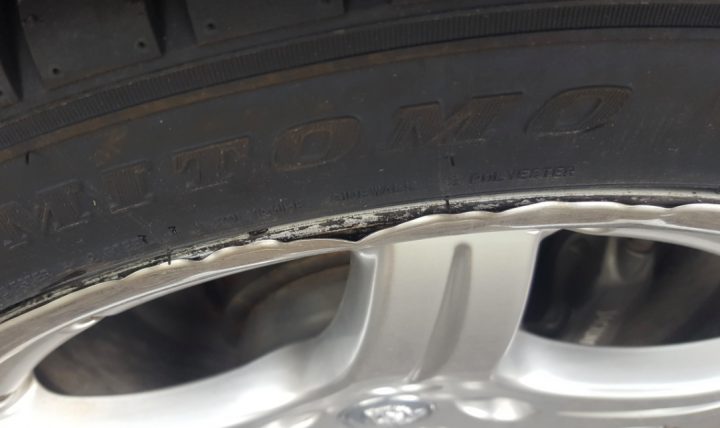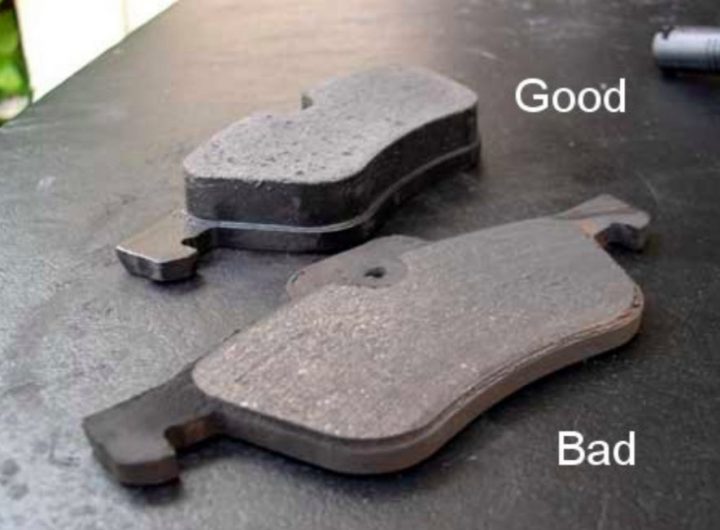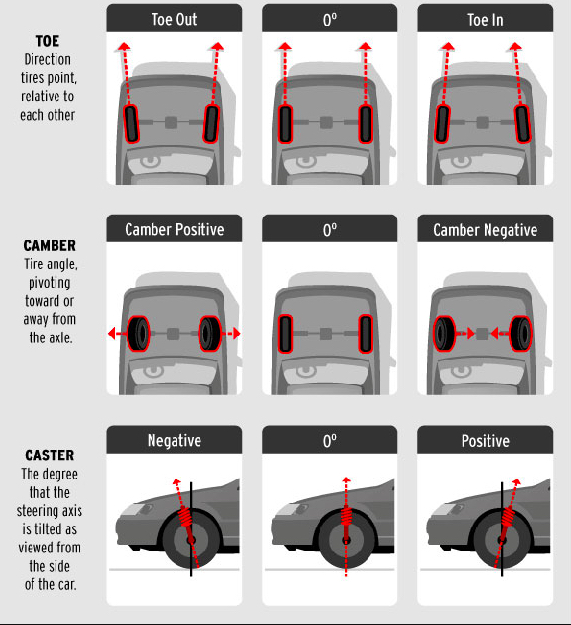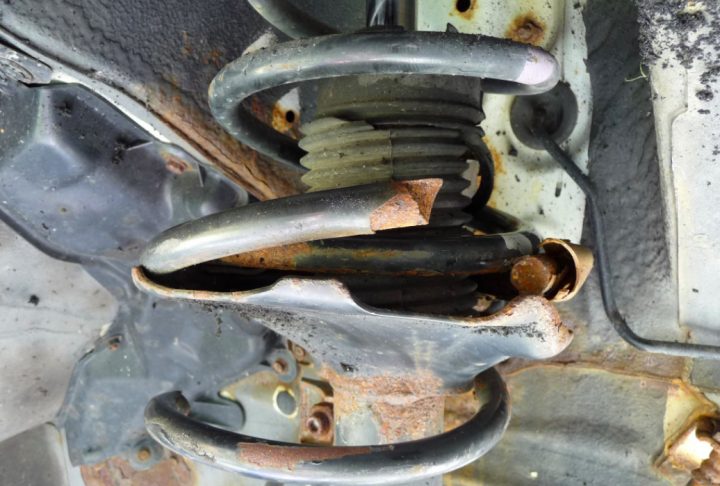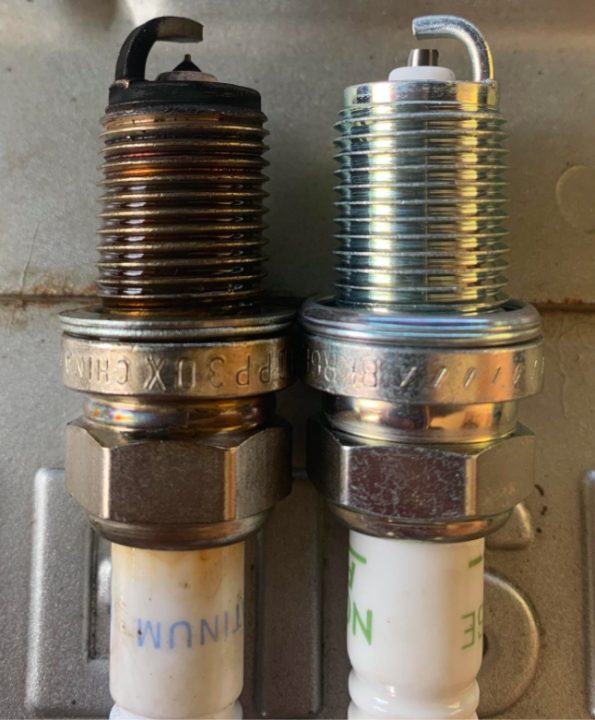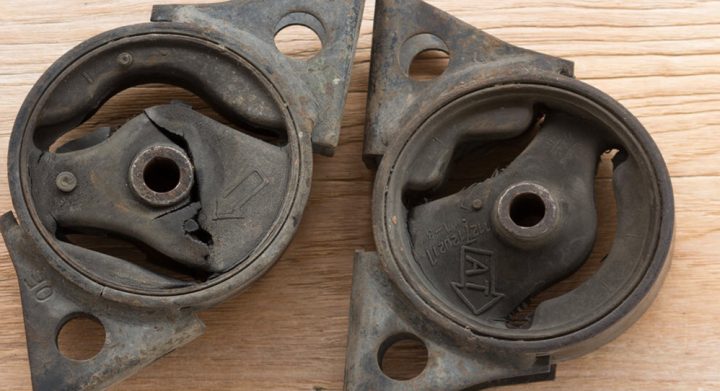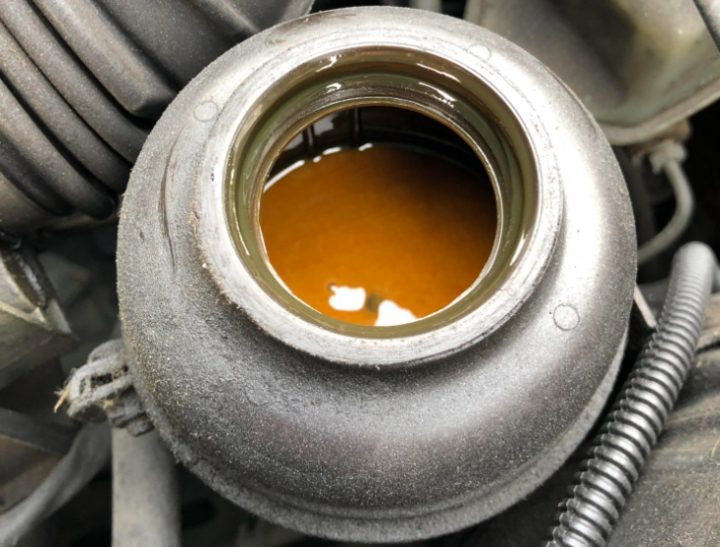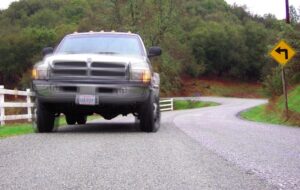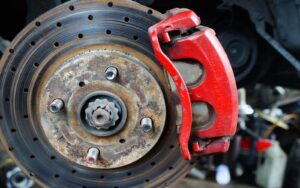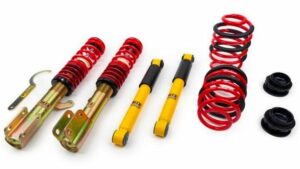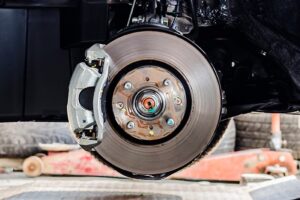Have you been driving along the highway with your kids in the car? Cruising along coming home from the supermarket and your steering wheel starts to shake!
Nothing can be more terrifying when you are braking and your steering wheel starts to violently shake. This is also more apparent when braking on the highway at 60-70 mph. This is not what anyone wants when driving highway speeds. It is pretty scary when my steering wheel shakes when braking downhill.
Table of Contents
But Why Why Does My Truck Shake When I Brake?
It is mostly caused by distorted or unevenly damaged front brake rotors (disks). But there may be other explanations for this. The rotor is the portion that is pressed by the brake pads while braking. The working surface of the new brake rotors is uniformed all around and the brake strength remains the same when the brakes are applied while moving.

An irregular or twisted rotor has thicker and thinner areas, and the brake force varies as the rotor spins. Can a change in brake power make the steering wheel shakes when braking downhill?
You may also feel a pulse in the brake pedal when this happens. This may cause car shakes when braking after new brakes as well.
This can happen with the front and rear brake rotors, but the problem with the front rotors is more likely to cause the steering wheel to shake.
Some of the cars have drum brakes on the rear axle. Warped or rusted rear drums can also cause brake pedal pulsation. How could cause the brake rotors to wear unevenly? It could happen for several reasons. It also occurs when the car is left outside without shifting for long periods.
READ MORE: WHY DOES MY WINDSHIELD FOG UP???
This causes parts of the brake rotors to rust, particularly in rainy weather; see the photo. Rusted brake rotors are a common cause of brake pedal pulsation and steering wheel shakes.
The rotors can also warp as a result of excessive heat produced during braking. It generally occurs in large cars, buses, minivans, and SUVs. Certain cases include low-quality brake rotor or pad material, sticky brake calipers, broken caliper pins, or inadequate installation.
What’s The Solution To Brake Rotors Warping?
The answer is to visit your mechanic and have your brakes tested properly and regularly. Mechanics have different devices to calculate the run-out and thickness of the brake rotors.
In some cases, the brake rotors may be machined if the damage is not too severe. While other rotors may be cheap enough that replacing them would be cheaper than trying to repair them.
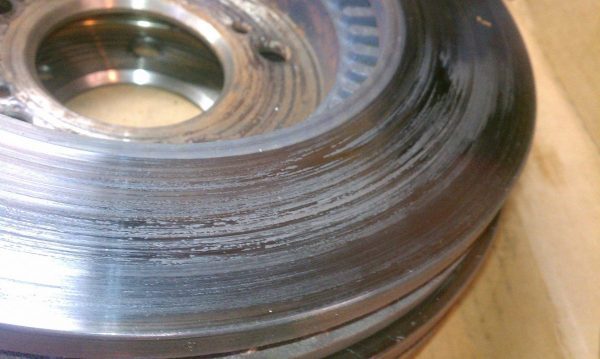
I had some suspension damage in my 2001 Honda Civic a few years back. Quite a few parts needed replacing. I ended up finding cheap OEM replacement parts from partsgeek.com for less than what the mechanics were going to charge me. Rotors were around $100 and when they arrived they were beefier than the originals that came on the car.
Most automotive shops have a machine called a brake lathe that can cut a thin layer of a brake rotor or drum material to make the working surface smooth and even. Machining (resurfacing) two rotors will add $40 to $120 to the price of the brake operation.
Should I Replace Or Repair My Brake Rotors?
Your mechanic may recommend replacing the rotors if they are too thin to be machined, or for any other reason. The installation of two rotors also costs marginally more than machining.
Replacing the rotors is always the preferred option, as machining makes the rotors thinner. Brake pads and other parts may also have to be replaced, depending on the situation.

How expensive is the removal of brake pads and rotors? Replacement of the brake pads and rotors in a small common car like a Honda Civic or a Mazda 3 may cost around $100 per axle while a Chevy Tahoe or Ford Expedition may run you $450. If you are replacing the rotors it is always recommended to buy only high-quality or direct OEM parts.
A busted rotor may be the culprit. But it is not always the case. There are many factors you may have to consider when your car shakes when braking at high speeds, not rotors. A thorough understanding of your car would really help.
The Most Common Reasons Why My Truck Shakes When I Brake:
- Unevenly worn brake rotors
- Damaged rim or tire
- Wheels need balancing
- Incorrectly installed or faulty suspension parts
- Problems in your steering column or alignment
- Worn wheel bearing
This is just a small basic list of problems that arise when your car shakes when braking at high speeds, but if we discuss them in detail, we can get a broader view of these issues. And it can be helpful to anyone who’s trying to prevent these issues in their everyday lives.
My Steering Wheel Shakes Because Of Unevenly Worn Brake Rotors
As stated above an irregular or twisted rotor has thicker and thinner areas, and the brake force varies as the rotor spins. Can a change in brake power cause the steering wheel to shake when braking downhill? You may also feel a pulse in the brake pedal when this happens. It’s going to get worse the faster you go and you may experience an unpleasant smell when stopping.
Steering Wheel Shudder From A Damaged Rim Or Tire
The most common cause of why a steering wheel shakes when braking hard is it needs new tires. When the tires get out of balance, the steering wheel shakes, causing the entire car to vibrate. Shaking can start about 50-55 miles per hour. As this is such a basic problem, it should be reviewed periodically.
Brake issues can be fixed by using a brake caliper service if the brakes need maintenance tests. For vehicles with 70-75k miles, this operation must be mandatory. If you stick to the scheduled service program of your car manufacturer, you can easily avoid these problems.
Typically, if you get an oil change, most of the time you have your brake pads and tires tested. People who use a very low mileage on their cars do not need such inspections all the time; Then, they’re doing their operation every six months. But people who cover long distances need to check their cars every month or two months to ensure a healthy car lifestyle.
Tires that wear unusually down or have a wheel that’s out of the round may be indicators of what’s causing a shaking problem. When one of the front or rear brake pads is worn more than the other, this could be an indication that the brake caliper is sticking.
Wheel Shakes From Defective Or Worn Brake Pads
Your car, and specifically the steering wheel, can also shake when your brake pads are dirty with contaminated waste, such as substances and oil/dirt. They can easily cause vibration and shaking as they grip the rotor. And when you put the brakes on, you’ll hear a loud noise coming out of your engine. When that happens suddenly, you’d have to remove the brake pads.
If your vehicle is out of alignment, you’ll most likely experience a pedal shaking sensation when the brakes are applied. This problem will most likely cause a lot of other issues, such as tire wear and suspension of components.
Do you have an Antilock Brake System and you see your ABS light on and car shakes when braking?
This is usually caused by a bad ABS module or wheel speed sensor, or low brake fluid. Check your fluids and use a code reader to see if any faulty sensors give you an error code.
Shaking Steering Wheel From Steering Alignment Problems
A way to test alignment problems is to get your vehicle up to 50-60 mph on a straight path when there’s no traffic nearby. Let go of your steering wheel for a moment and see if the car is trying to go either to the right or to the left. When it does, it, therefore, needs to be realigned.
You need to get a two or four-wheel alignment as soon as possible to get your car repaired. A complete inspection of the car can tell whether it needs a two-wheel alignment or a four-wheel alignment. If your car axle or frame is also damaged, you will necessarily need a four-wheel alignment.
Car Making Noise From Defective Suspension Components
Are there other issues when your steering wheel shakes when braking and after? Parts of your suspension system, such as wheel bearings, ball joints, and tie rods, are worn over time. If only when you turn your suspension, the car shakes, that’s probably the problem.
To fix this issue, you would need to have your car inspected so that a proper diagnosis can be made and the issue can be fixed correctly and precisely. Costs would be as small as labor costs.
Small driving errors, such as driving up and hitting a pothole, can damage the rim and make it bend. The bent rim will cause vibrations while driving and will increase if you travel faster. The bent rim should be taken care of quickly because it can also cause a loss of pressure in the tire.
How To Prevent My Truck From Shaking When I Brake
As of now, the explanations have been briefly highlighted. We’re trying to come up with simple solutions to these other problems. The tire problem can be easily solved by purchasing high-quality and covered tires, and also by having them checked properly when your car goes for maintenance.
A spinning wheel is an annoying concern for the driver, since the car driver’s shaking may get into an accident, and anyone facing such a problem needs to know how to change or repair a tire. When you understand your wheel, you can repair it by yourself as well. The tools you’d need are a flat end screwdriver, a hammer, and a lug wrench.
First of all, you’re going to detach the weights of the wheels than the wheels themselves. After removing the wheel, you’d have to clean it and balance it. You’re going to have to mark the points and bring the weight back on. Then recheck and adjust the wheels and return them back to position. This is all going to happen with a balancer.
Monitor Or Even Just Replace Your Spark Plugs
Is one of the most useful car parts because it regulates the fuel pump. This could cause car shakes sometimes when braking completely. These are easy fixes. First, you’d need to find them in your car. Most of the spark plugs are located on the top of the engine under the hood. You need to remove a few parts under the hood to see the spark plugs.
The second step is to remove the plugs. You need to make sure that your car is cool before you remove off them if you had just driven your car.
You’re going to remove the wire at the bottom of the engine and see the plug, but without yanking at it, you’re going to show it, so the lead doesn’t get disturbed. The next move is to calculate the distance between the spark plugs. These plugs are mostly preset according to the latest car application.
To calculate or adjust the distance of the connectors, you will need to tap the wooden plug with a gauge until the plug meets the precise measurement that is right. Unscrew the plug from the engine use the spark plug socket.
Can Transmission Problems Cause Shaking?
It can also be a challenge, as it is necessary to determine the vibration of your car. You can solve this problem easily. First of all, you’d need to leave the engine idle.
Usually, responsible drivers monitor and top up the transmission fluid. You need to keep the hand brakes locked for your own safety. You need to add the right transmission fluid.
READ MORE: WHAT IS A GOOD ENGINE COMPRESSION? HOW DO I CHECK?
Then dump the fluid into your drive. Using the funnel to pour it in, so you can make sure there’s no overfilling. During this test, the fluid level will be tested again to make sure whether the level is at max or not.
Then depress the breaks and run the transmission. You make sure you get the correct reading when you do this. Bring the dipstick back to the transmission opening. You’d have to lock it in place by using a key or something. After that, the car’s going to end up shaking.
Check For Clogged Transmission Filters
You need to change that every two years or 20,000 miles. You need to go through a certain process to fix the problem of car shaking caused by it. Next, you need to jack up the vehicle; this move keeps the car safe and stable when you’re working underneath it.
Then you need to drain the fluid by placing the drain plug underneath the field. Using the socket wrench to do the job. Then clean the pan by removing the bolts and the old gasket seals and scraping off the dirt and debris.
Install a new pan gasket seal and change the transmission filter. To do so, you need to remove the bolts holding the filter.
Can Bad Motor Mounts Cause Shaking?
These are part of the engine that holds your car in place. These motor mounts eliminate most vibrations and all shakes. They’re usually made of metal and rubber. And it’s located between the car frame and the engine. The metal provides the structure of the motor mounts, and the rubber helps to absorb the vibrations of the engine.
Some of these items wear out over time and need to be replaced. When worn out, the metal stops protecting the firm belt, and the rubber does not absorb vibrations causing the car to shake when the brakes are applied.
When doing work yourself be extra diligent. It can be easy to get steering wheel shakes when braking downhill since there are so many moving parts.
There’s nothing wrong with that, but most people find it annoying. Poor motor mounts can shake your engine and you should remove or patch them immediately to prevent stopping car shakes in front when braking.
Can A Bad Axle Make Your Car Shake?
When you damage or twist your axles it can instantly change the driveability of your car. Your car can start making a knocking noise and the car shakes when braking quickly. When such a thing happens, the drive shaft will need an inspection. You’d need to find new axles for front-wheel-drive vehicles.
Can Power Steering Make Your Car Shake?
When your car shakes as you take turns, there’s a problem with your power steering system. You would need to check the hoses to see if there are any leaks and check the engine to see if any steering fluids need to be removed. Alternatively, test the car with a professional or attempt to recreate the sound when the car doesn’t turn.
Many car problems may cause your vehicle to shake while braking at a certain speed. Potentially severe issues can be a high concern for your vehicle. There are some of the most common reasons for your car to rock when you are applying braking at high speeds.
Before the steering wheel shakes when braking downhill gets out of control, you need to repair your car. You would always need your car’s usual service to help ensure its needs and maintenance at the same time.
Test your car often and its basic components before you leave for a long drive to avoid things like your car shakes when braking at high speeds.
Thanks for reading and stay dirty.

